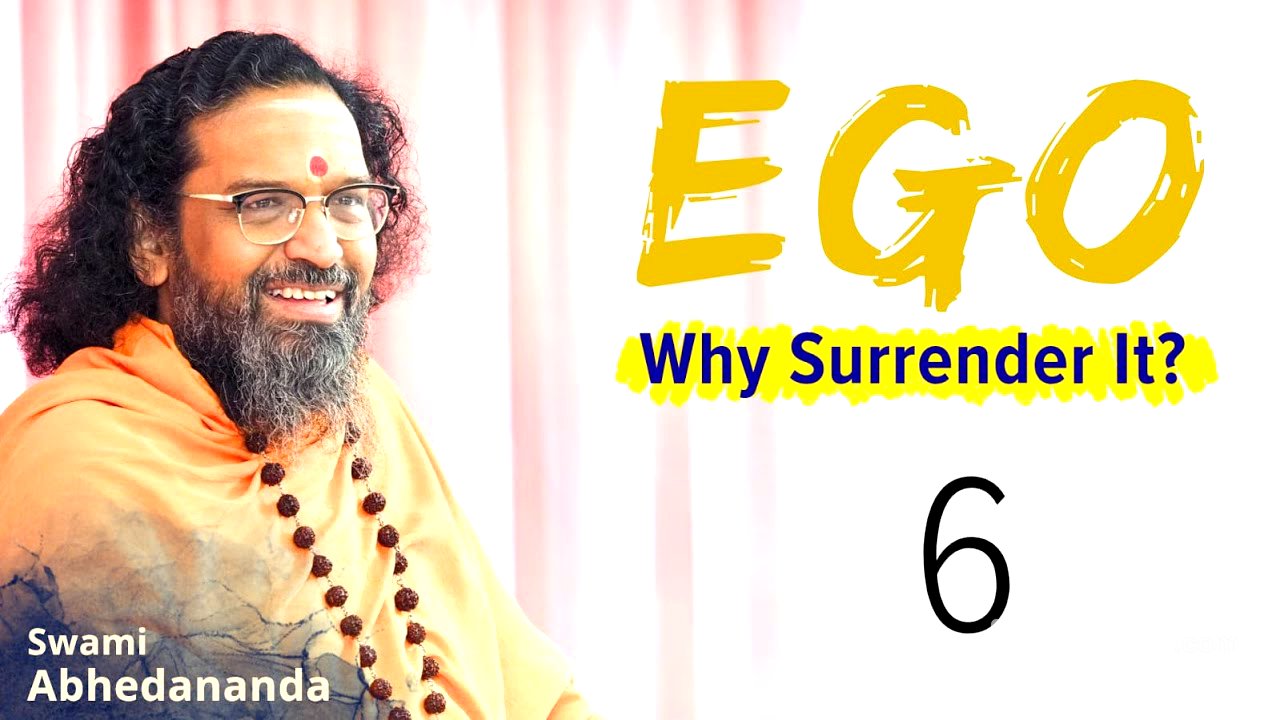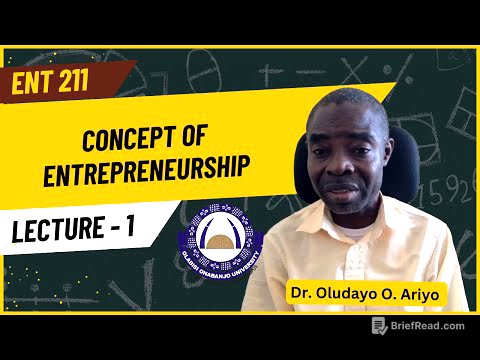TLDR;
This video features a discourse on spirituality, drawing from the Ramayana to illustrate key concepts such as the importance of internal conviction over external circumstances, the role of ego, and the path to dedication. The speaker emphasizes recognizing God's presence in life's events, understanding the nature of ego, and surrendering to divine will. The discussion also touches on the interactions between Ram, Lakshman, and Parshuram, highlighting themes of humility, wisdom, and devotion.
- Importance of internal conviction over external circumstances.
- Recognizing God's presence in life's events.
- Understanding the nature of ego and the path to dedication.
Introduction and Prayers [0:01]
The video begins with traditional Hindu prayers and chants, setting a spiritual tone for the discourse. These opening rituals invoke deities such as Ganesha, Rama, and Hanuman, seeking blessings and auspiciousness for the session. The prayers serve to purify the environment and focus the minds of the listeners on the divine.
The Primary vs. the Secondary [10:04]
The speaker introduces the concept of prioritizing the primary (God) over the secondary (worldly matters). He critiques the common societal emphasis on material success and career over spiritual development and love. The speaker elaborates on the four aspects of human existence: mind, intellect, ego, and heart, explaining how each plays a role in our perception and interaction with the world. He points out that external things provide less happiness than internal convictions.
Mind, Intellect, Ego and Heart [14:18]
The discussion shifts to the importance of directing the mind, intellect, ego, and heart towards God. The speaker explains that weaknesses of the mind involve worldly attachments, while the intellect should recognize the importance of God. He stresses the need to break the ego and align all four aspects towards the divine. The speaker emphasizes that true happiness comes from within, regardless of external circumstances.
The Nature of Rules and Faith in God [18:28]
The speaker discusses the nature of rules, suggesting that they are intelligent and create specific effects. He emphasizes the importance of believing in and knowing God, even when faced with life's challenges. The speaker notes that even when God takes something away, it is ultimately for our good, leading to realization and progress. He encourages listeners to recognize God's role in saving them during difficult times.
God's Unique Way of Loving [24:50]
The speaker describes God's unique way of loving, which is often unseen but deeply felt. He uses the analogy of a painter who doesn't sign his paintings to illustrate God's selfless actions. The speaker encourages listeners to recognize God's love in their lives and to focus on making God great in their minds, breaking their ego in the process.
Omniscience and Importance of God [27:14]
The speaker emphasizes God's omniscience and omnipotence, urging listeners to believe that everything in their lives, including challenges, is given by God for their benefit. He explains that rubbing our intellect with the dust of satsang helps us realize who is truly important. The speaker contrasts this with the ego, which inflates our sense of self-importance despite our limited knowledge.
Ego and the Acceptance of Truth [34:40]
The speaker discusses the role of ego, explaining that it prevents a person from accepting truth and hinders understanding. He emphasizes that sorrow arises from refusing to grow and learn, while humility allows one to accept mistakes and improve. The speaker warns against arrogance and encourages listeners to remain open to different possibilities and perspectives.
Ramayana as a Mirror [38:37]
The speaker describes the Ramayana as both a mirror and a photograph, explaining that it reflects the present and shows the past. He emphasizes that the Ramayana serves as a mirror, prompting self-reflection and improvement. The speaker then transitions to discussing Janak Ji and Parshuram Ji, who both struggled to understand the infinity of Ram Ji.
Janak Ji's Yagya vs. Drupada's Yagya [39:56]
The speaker contrasts Janak Ji's yagya (sacrifice) with Drupada's yagya from the Mahabharata. He explains that Janak Ji's yagya was an agenda of surrender, while Drupada's yagya was more about showing greatness and fulfilling a hidden agenda. The speaker emphasizes that Janak Ji's yagya is about making God great and breaking one's ego, a difficult yajna for worldly people.
The Incompleteness of Virtues and Demerits [48:21]
The speaker discusses the incompleteness of virtues and demerits, explaining that while virtues can cure defects, they can also lead to ego. He emphasizes that only dedication to God can truly break the ego. The speaker uses the analogy of meditating by the grace of God, acknowledging that there will come a time when we are unable to meditate, highlighting the importance of surrendering to divine will.
Parshuram's Affection for the Bow [53:50]
The speaker discusses the interaction between Lakshman and Parshuram, highlighting Lakshman's questioning of Parshuram's affection for the bow. Lakshman points out that if Shiv Ji had so much affection for the bow, he would not have given it away. The speaker emphasizes the importance of doing one's work and leaving the ego behind.
The Nature of Anger and Humility [1:07:18]
The speaker discusses the nature of anger, explaining that it is the root of sins and stems from ego, stubbornness, and attachment. He contrasts this with the humility of Ram, who remains calm and composed. The speaker emphasizes that an angry person is a weak person who loses control, while humility allows one to maintain composure and make better decisions.
Ram's Modesty and Forgiveness [1:14:16]
The speaker highlights Ram's modesty and forgiveness, emphasizing his soft and gentle tone. He explains that Ram's humility is a sign of his divinity. The speaker stresses the importance of saying sorry and forgiving others, as it is the basis of all relationships.
Parshuram's Surrender and Dedication [1:27:35]
The speaker discusses Parshuram's surrender, noting that it is still pending. He emphasizes the importance of dedication to God, which means accepting whatever God gives and doing all work for Him. The speaker concludes by highlighting the beautiful incident of Janak Ji and Vishvamitra greeting Ram, acknowledging his humility and skill.
Conclusion and Gratitude [1:34:27]
The speaker concludes by thanking the audience and the Chinmaya Mission in Gurgaon for the opportunity to explain the Ramayana. He expresses gratitude for the ability to share his love and understanding of the scriptures. The video ends with a final prayer and a sense of gratitude for the shared spiritual experience.









